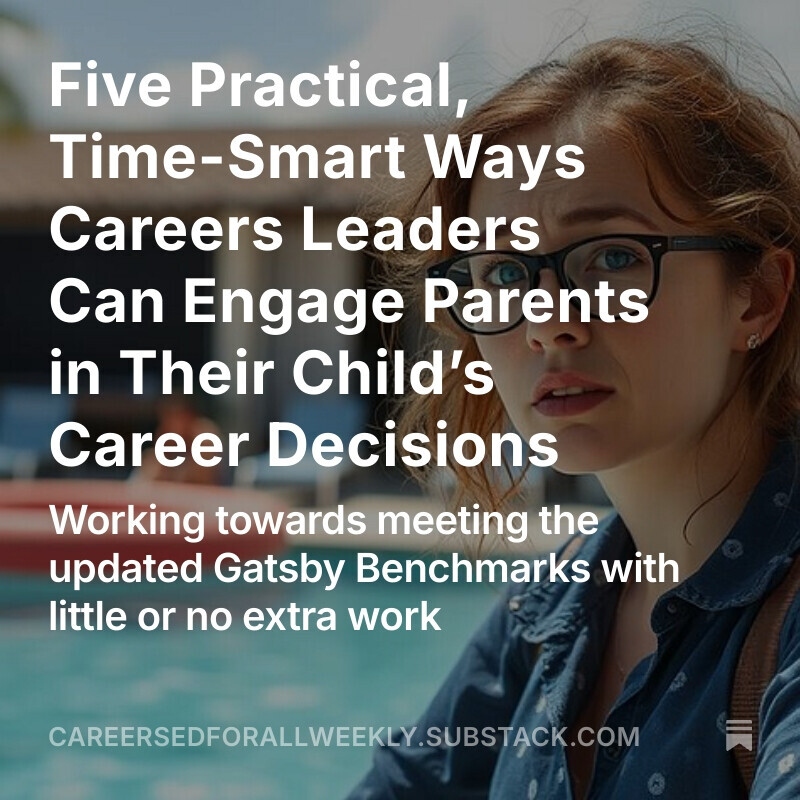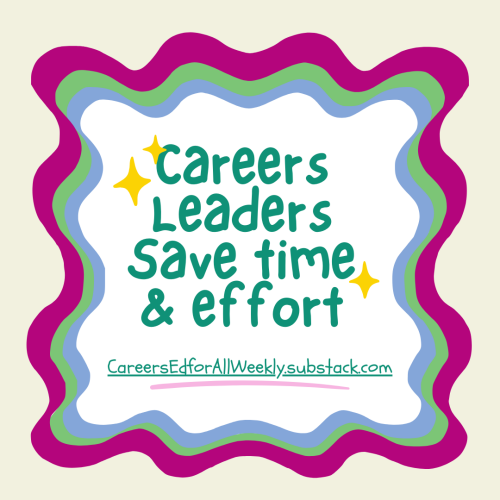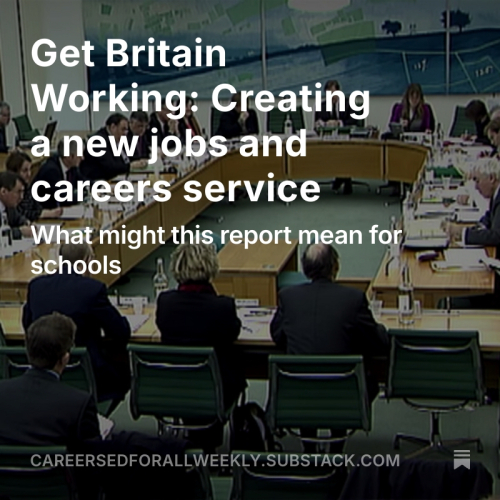Are you a headteacher, senior leader, or careers leader?
What is happening to change the role of schools in careers education?
The Careers Education Substack is a low cost resource for all schools to improve career readiness for their pupils
The Government is changing the way that career guidance is delivered in England. As a part of this they have adopted the updated Gatsby Benchmarks and published a new statutory guidance which places much more emphasis on careers education and guidance being a whole school issue.
Research also tells us that careers education is a lynchpin for school improvement – pupils are motivated when they know what they want to achieve in their lives and how to go about it.
Research such as that by Trilling and Fadel underpin this assertion and schools that value and promote careers learning as part of their core offer often have far better destination data and exam results.

So what do the changes in Gatsby & the statutory guidance mean?
The old model of careers being a couple of CV lessons and an interview in year 11 is gone. It’s now much more cross curricular and can no longer rely on just one person to deliver it It’s a whole range of activities and strategies both inside the classroom and out. (see figure 1) The latest version (2025) of the statutory guidance puts it firmly at the centre of every schools' curriculum.

Fig 1.The Gatsby Benchmarks
Every school MUST have a named Careers Leader, they should be trained and they MUST receive the support of the SLT and Governors.
So what?
The Government has made changes to legislation to ensure that schools comply with the statutory guidance for careers and especially the Baker Clause (Provider Access Legislation) which is a legal requirement for all secondary schools to ensure that ALL pupils learn about ALL routes including apprenticeships, school leaver programmes, jobs with training and HE as well as university.
In addition, changes to the Ofsted inspection framework have been tightened to ensure that all schools meet the Baker Clause and deliver good careers education and guidance.
These measures are tightening as are the penalties for not meeting them. However, the bottom line for most teachers is that we want to do what is best for our students. So I refer you back to the research.
Good quality careers education information and guidance results in better long term destinations, higher earnings and job satisfaction
Firstly I’d urge you to ask yourself the following questions:
- Do you think your pupils have REALISTIC & AUDACIOUS aspirations?
- Do you provide unbiased and up to date information to inform decision making?
- Do you support pupils to be able to evaluate the information provided?
- Do you feel they’ve considered ALL the opportunities?
- Do your teachers & support staff have the necessary skills to support your pupils in making these choices?
Firstly, Subscribe to The Careers Education Substack
Secondly, Outstanding Careers Offers a range of INSET, CPD and consultancy services if you don't see what you're looking for here, please get in contact.
Not sure? Look at my Testimonials page.














